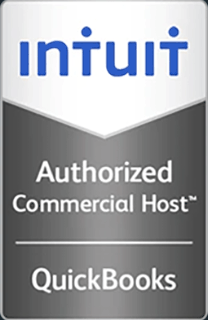The Cloud Dissipates?
Mission Critical Magazine | July 7, 2016 | Adam Stern
Perhaps, but don’t cry for off-premises computing just yet.
Not to get political or anything, but we appear to live in disruptive times. It’s almost as if backlash is its own reward. Seemingly nothing is sacred. The mood is feisty — and IT isn’t exempt.
In that vein, I’m fully expecting a cloud computing backlash, if it’s not already here. The backlash is less about architecture than about language. The fans of disruption will shift the terminology around — again. At the end of the day, off-premises computing will be combined with on-premises computing, based on different strategies and different types of companies — and they’ll keep doing that indefinitely. Whether it’s called “cloud computing” or not is irrelevant. The words change, and the technology for off-premises will continue to mature, and then be re-infused back into on-premises. It’s a bit like the space program, where NASA went to the moon and everyone got Tang; the spinoffs, in other words, are real.
So new terminology will surface, at some point. It wasn’t that long ago that everyone was crowing about the “client/server revolution.” From PCs to mainframes, and then PCs behaving like mainframes. Followed by “thin client,” which was just an earlier iteration of today’s BYOD. The cycle repeats itself — it’s a bit more nuanced this time, perhaps, but it’s still the same idea. And hype aside, it feels very much like an evolution, not a revolution.
But there’s some cachet in being the object of a backlash — at least one premised on an underlying acceptance of an altered status quo. And let’s make no mistake: whatever we (or “they”) call it, the cloud simply isn’t going to drift away. Morph, perhaps. Gain new adherents and new detractors among small and midsize businesses, certainly. But when the new normal embeds itself in everyone’s consciousness, it’s not going anywhere. And other assumptions begin to emerge.
Consider the ostensibly simple process of backup as a case in point. Even so-called “low tech” small business customers are far more informed now than they’ve ever been, requesting features and capabilities that were unheard of, pre-cloud. Back in the day (say, since the mid-’80s), a daily backup was always enough; only the most demanding users wanted hourly or multiple backups during the business day. That one-a-day routine may not have applied to very complex environments, but they were the exception that proved the rule.
But because today’s (cloud) offerings can do so much more, IT providers are routinely offering hourly backups. As data volumes have taken on astronomical dimensions, the bar has been raised. Where it was once unthinkable to lose a day’s worth of work, the prevailing sentiment is closer to regarding the loss of even a minute’s worth as intolerable.
And it’s tough to argue with that. Surely, no vendor with any feel for customer expectations or customer service would come down on the side of porous data protection. The advent of snapshot technology has fueled a desire among small business users to expect ever-higher levels of backup protection, even in the face of performance penalties. Multiple snapshots during the business day does make sense — but the notion of backups every hour of every day seems to me to cross a line.
These altered expectations aren’t limited to “low tech” small business users. IT service providers want this sort of assurance as much as novices do, and they fully understand the performance ramifications. Tellingly, the middle-of-the-road customer understands technology’s limitations and is more likely to calibrate demands to the realities of performance, cost and necessity.
IT service providers who are themselves in the middle ground tend to be better at paying attention than their larger or smaller counterparts at either end of the vendor spectrum. The middle ground is that turf occupied by providers who operate neither from their garage nor from skyscrapers that extend to a thousand points unknown. The mantra of the middle ground is simple: this is, above all, a service business, dedicated to helping their core constituency — small and midsize organizations — prosper. Personalization matters, which is why any backlash is apt to be aimed at providers who don’t in fact have the small business’s interests at heart (or can’t deliver because they lack the depth).
But the backup dilemma nicely illustrates the cloud’s unassailable cred. Small and midsize business users are becoming savvier, and while cloud was once nebulous, it’s now concrete enough to elicit reaction — even a backlash — from those formerly regarded as “less sophisticated.”
That actually feels like progress.





